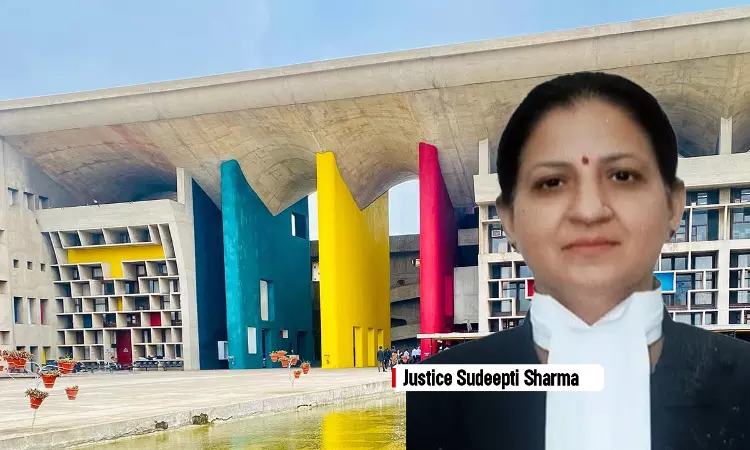- Home
- /
- High Courts
- /
- Punjab and Haryana High Court
- /
- Can't Hold Online Platforms Liable...
Can't Hold Online Platforms Liable For Contempt Over Songs Glorifying Liqour, Violence Due To Non-Compliance With Reet Mohinder Order: P&H HC
Aiman J. Chishti
8 Sept 2025 7:11 PM IST
In a recent clarification, the Punjab and Haryana High Court held that online platforms such as YouTube, Apple Music, Spotify, and others cannot be held in contempt for hosting songs that glorify violence or promote liquor, under the scope of the directions issued in the Reet Mohinder Singh v. State of Punjab & Ors. case.In Reet Mohinder Singh v. State of Punjab & Ors, the Court...
In a recent clarification, the Punjab and Haryana High Court held that online platforms such as YouTube, Apple Music, Spotify, and others cannot be held in contempt for hosting songs that glorify violence or promote liquor, under the scope of the directions issued in the Reet Mohinder Singh v. State of Punjab & Ors. case.
In Reet Mohinder Singh v. State of Punjab & Ors, the Court had issued set of guidelines to ensure loud speakers are not used at night from 10 am to 6 pm and peripheral noise level of a privately owned sound system does not exceed 5dB(A) more than the ambient air quality standard specified for the area.
Justice Sudeepti Sharma said, "The principle grievance actually, is directed at the availability of songs on online/digital platforms (YouTube, Apple Music, JioSaavn, Wynk Music, Spotify, etc.). However, the Division Bench directions reproduced above do not regulate the hosting or transmission of online content. The direction principally govern noise pollution and the use of sound-producing devices at physical venues, with corresponding on-ground enforcement."
The Court further said that, to the extent the petitioner seeks regulation or take-down of content on digital platforms, that is beyond the four corners of the directions issued by Division Bench in Reet Mohinder Singh v. State of Punjab & Ors and is not a ground of civil contempt of that said judgment.
Appropriate remedies, if any, lie under the framework governing intermediaries and content, not in contempt of the judgment aimed at noise control, it added.
The petitioner Hardik Ahluwalia, contended that notwithstanding the ruling in Reet Mohinder Singh vs. State of Punjab and others, songs glorifying violence, drugs and liquor continue to be played at marriage functions, clubs, discotheques and public events, and that such content remains readily available on online platforms like YouTube, Apple Music, JioSaavn, Wynk Music and Spotify.
After hearing the submissions the Court said, "A careful and contextual reading of the aforesaid directions reveals that the Division Bench was primarily addressing the menace of noise pollution and ensuring enforcement of the Noise Pollution (Regulation and Control) Rules, 2000 and related cognate provisions."
It noted that, "directions regulate the use of loudspeakers, public-address systems and sound- amplifying devices in physical spaces and lays down temporal restrictions, cast monitoring and enforcement obligations on the State machinery."
The Court observed that, it is a well-settled principle that the contempt jurisdiction is quasi-criminal; consequently, the standard of proof is high and presumptions cannot substitute proof. "Further, it is trite law that contempt is not a vehicle to expand or re-write an order or to conduct a roving enquiry into generalized non-compliance."
Testing on these parameters, Justice Sharma said that the petition is deficient on foundational facts. "No specific instance has been pleaded such as the date, venue, event, or the identity of the persons or authorities where the directions extracted above were violated."
Stating that "the petitioner has failed to establish any instance of willful and deliberate disobedience of the judgment of the Division Bench," the Court said, "While the Court was inclined to impose costs for filing a misconceived contempt petition, considering that he is a young member of the Bar and mindful that costs may unduly prejudice him, this Court refrained itself from imposing costs."
Mr. Hardik Ahluwalia, Advocate petitioner-in-person.
Mr. Jaivir S. Chandail, Advocate (through VC) for respondent No.3-UT Chandigarh.
Mr. Ravneet Singh Joshi, DAG, Punjab
Mr. Harish Nain, AAG, Haryana
Title: Hardik Ahluwalia v. Gaurav Yadav, IPS and others
Click here to read/download the order



